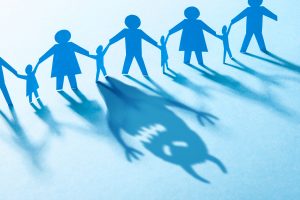Helping Parents and Partners Support Loved Ones with Eating Disorders
Knowing how to help support a loved one with an eating disorder can feel impossible.
UPDATE: Northside Mental Health is excited to introduce our sister company, Northside Consulting. Here you will find information regarding education and resources for you to learn how to best support your loved one who struggles with an eating disorder. For more information, please visit Northside Consulting LLC.
Parents of a Young Adult with an Eating Disorder:
You thought you were done with the hard part. You kept your sweet baby alive. They survived their childhood. Somehow, they even made it through those terrible middle school years. Your kiddo is basically an adult now! And, just when you thought you could breathe and finally sleep soundly…this disgusting beast hijacks your child.
Partners of a Spouse or Girlfriend with an Eating Disorder:
You finally found the love of your life. To you, everything about them is beautiful, perfect and special. The two of you are embarking on a life together and suddenly, they seem to become someone totally different. They look a little bit like the person you love, but something has taken hold and refuses to let go.

Of course, as a parent, you are angry. Of course, as a partner, you want the eating disorder monster to just go away.
You are supportive. You only want to help. Your intentions are good!
YOU just want the best for the person you love. Like any reasonable parent or partner, you are not going to leave them alone. You will do whatever it takes to get them on the right path.
Your Loved One’s Eating Disorder Does NOT Define Her.
 The person you love and cherish is still in there. You might not recognize them right now, but they are in there. She is still the fun-loving, kind and compassionate person you love. Right now, we just have to work a little harder to help her find herself again.
The person you love and cherish is still in there. You might not recognize them right now, but they are in there. She is still the fun-loving, kind and compassionate person you love. Right now, we just have to work a little harder to help her find herself again.
Your partner, your daughter, your loved one has been hijacked by this monster. The things they are saying and doing are not them. Not really. You are all on the same team against this monster we call an Eating Disorder.
How will I help you, as a parent or partner, learn to support your loved one through eating disorder treatment?
Let’s talk about what an eating disorder actually is. If your loved one is dealing with anorexia, bulimia, binge-eating disorder or an undefined issue, we can dive into the issues. Maybe we need to spend some time really dissecting the “why” behind it all. This is a multifaceted problem that just isn’t easy to fix. If it were easy, you wouldn’t be here. So, let’s dig into some of the things you might be feeling:
Shame and Blame
Let’s take away the idea that the parents are to blame! We cannot do anything to help your kid of you’re mired in guilt and blame. For partners, the desire to blame parents can be high too. But, we know that this is not a rational and logical illness. This is something that we have to work against as a team. As a unit. Because this monster feeds on isolation and shame.
Anger and Resentment
Then, we’ve got to work on that anger and resentment. You might not even know you’re angry. It might feel horrible that you’re resentful. But, once you acknowledge the anger and resentment, you feel guilty. You do NOT have to hide from the anger. There is nothing to feel shameful for.
Confusion and Overwhelm
Navigating eating disorder treatment can be confusing and overwhelming on so many levels. Especially, if this is the first time someone has presented for treatment. We can sort through what is a must-do and what are unnecessary “shoulds” that can be thrown away.
Depending on your individual needs, I might spend time in counseling with you:
-
Working on ways to better communicate with your daughter, partner or loved one
-
Set limits and boundaries around food with her
-
Encourage healthy self and partner care
-
If necessary, manage the transition to a higher level of treatment
How long will it take to learn how to support my partner or daughter with an eating disorder?
Usually, I meet with parents or partners for 3 or 4 sessions over the course of three months to provide coaching and support. These sessions usually last around an hour. We try to make this happen while the person getting treatment for an eating disorder works one on one with another therapist here. That therapist is going to help identify the needs, motivations, and strategies for your loved one to use to help themselves as best they can.

Are you ready to fight this Eating Disorder “monster”?
If this team approach sounds like a good fit for you, let’s get started. We make it easy to get connected to me and my team, once you make the choice to fight for eating disorder recovery.
When you are ready, follow these simple steps:
- Contact us to set up your first appointment.
- Meet with me, Kate Fisch, an eating disorder and recovery expert.
- Work through your shame, blame, anger and guilt with me, so you can be the best support possible for your family.
Other Mental Health Services Offered at Northside
As you now know, my passion and experience is in eating disorder treatment and addiction recovery. We offer counseling for individuals and families including providing substance abuse counseling, trauma therapy & PTSD treatment. Throughout the year, we also hold workshops and groups for a number of emotional & mental health issues you may be dealing with. Please reach out and let us know how we can help support you to live your best, most fulfilled life.